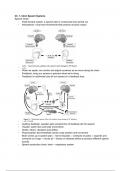Summary
Summary LING 314: Instrumental Phonetics Summarized Textbook Notes
- Course
- Institution
- Book
Concise and straight to the point summarized textbook notes from chapters 1-5, includes diagrams. Course was taken at UBC with Dr. Murray Schellenberg.
[Show more]



